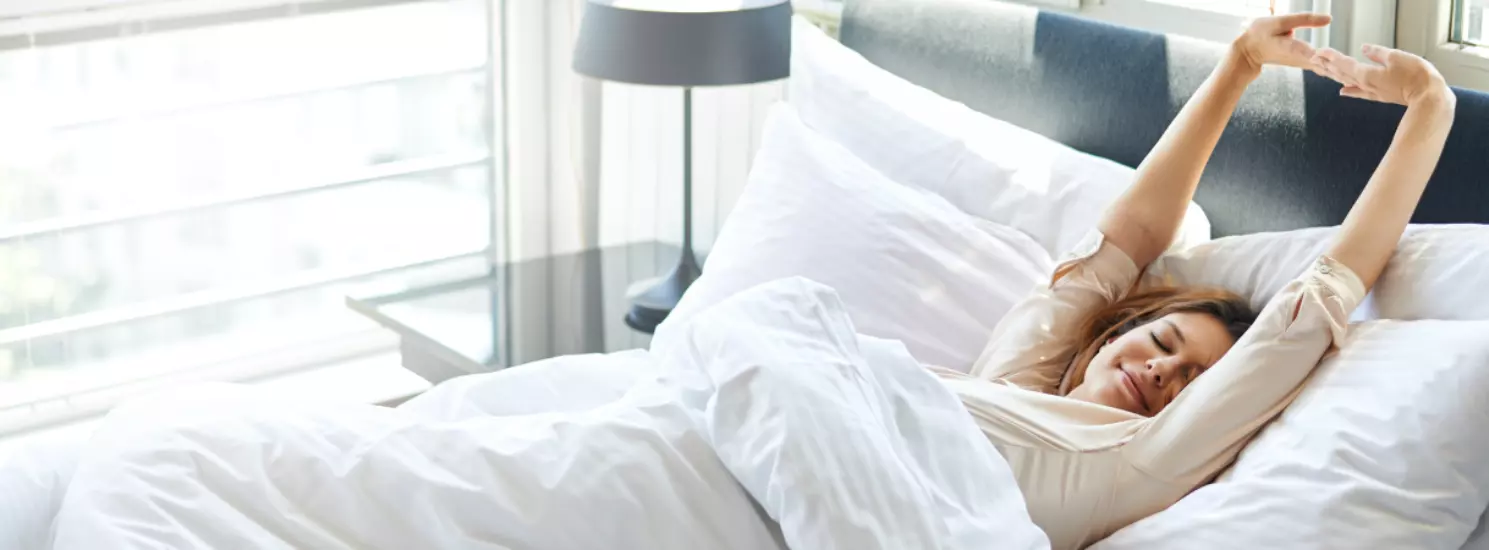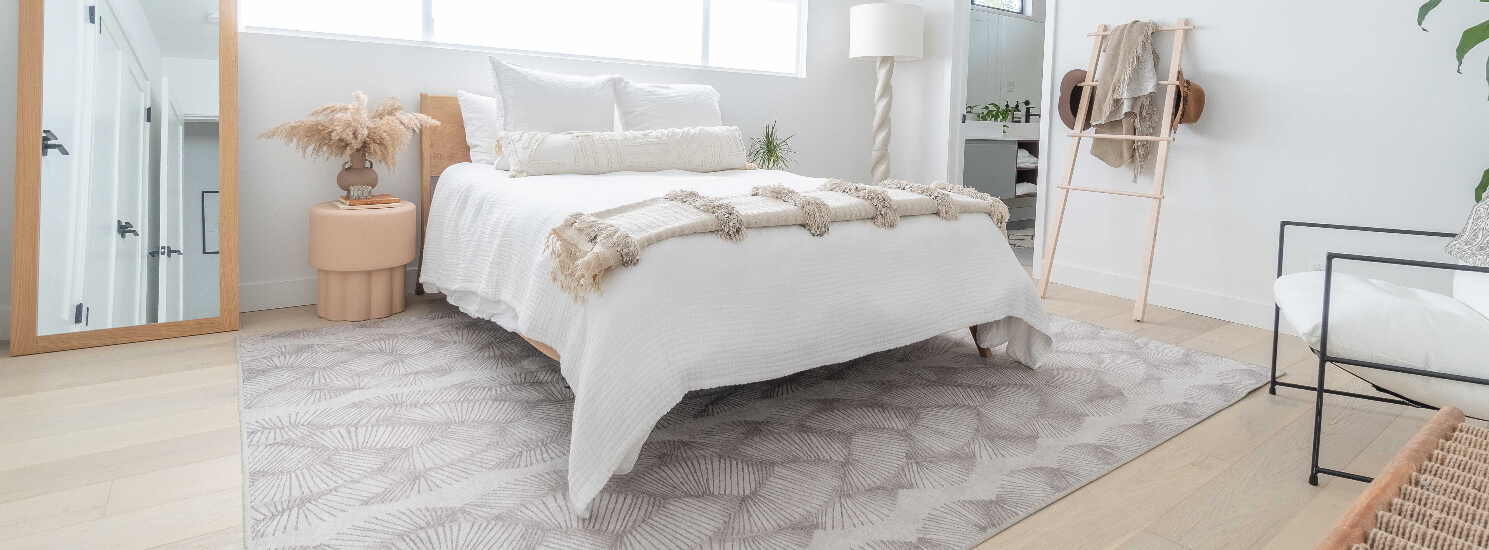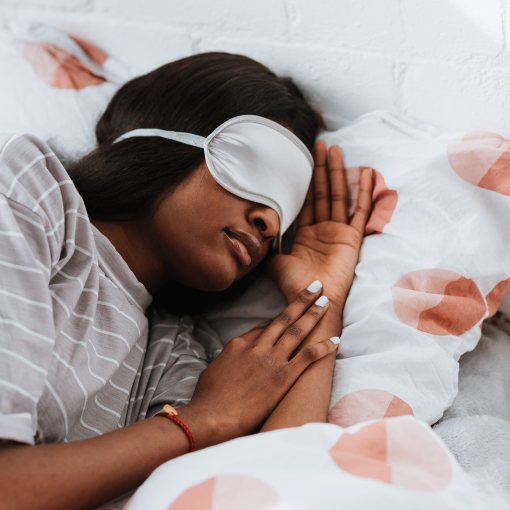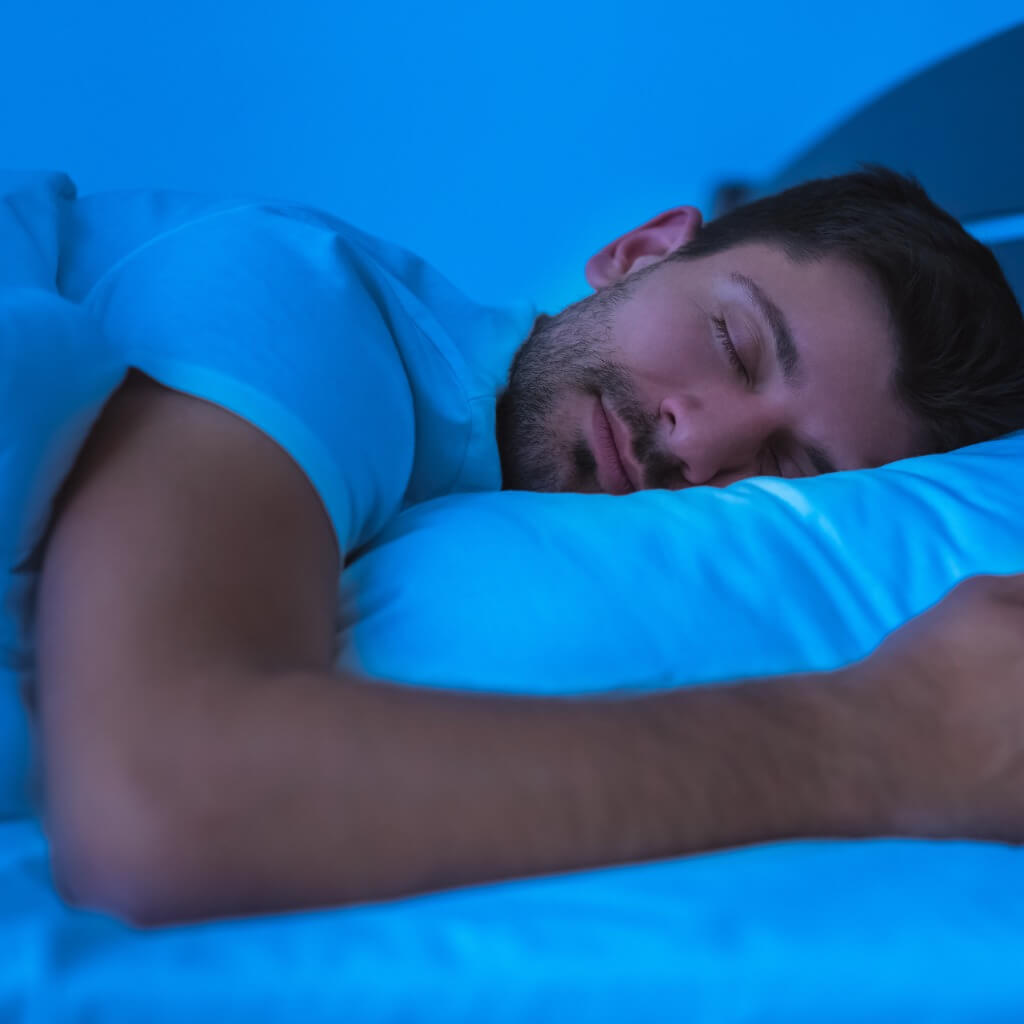When you work a high-stress job, your sleep quality may suffer. But getting good sleep helps you stay sharp and alert on the job, an essential quality for first responders, healthcare professionals, and military members. How can you get better sleep?
We talked to Dr. Jade Wu, Ph.D., DBSM, a Board-certified behavioral sleep medicine psychologist and researcher at Duke University School of Medicine. Dr. Wu is an author, speaker, scientific consultant, and author of the new book, Hello Sleep, “a practical and compassionate guide to having a better relationship with sleep and overcoming insomnia.”

Mattress Firm
Military, Nurses, First Responders, Medical Providers, Teachers, and Students get an extra 10-20% off! Save on a large selection of quality, brand name bedding products
How Does Your High-Stress Job Affect Your Sleep?
It’s not surprising that job stress can impact your sleep. Dr. Wu explained that the sort of stress first responders, military members, healthcare providers, and others often face affects sleep in two main ways.
1. It’s hard to shut off when your job requires you to be always on
“When you’re hyper-vigilant,” Dr. Wu said, “your body and brain are constantly on alert. The message you send to your body is that you could be in danger at any time, so you’re constantly in at least a low-level fight-or-flight mode.”
“The message you send to your body is that you could be in danger at any time, so you’re constantly in at least a low-level fight-or-flight mode.”
Dr. Jade Wu
That state of chronic fight-or-flight can spike, often at unpredictable times. Your body, Dr. Wu said, learns that you’re always unsafe. It’s a natural instinct held over from the days when our ancestors had to be constantly wary that a sabertooth tiger could spring from the bushes.
And, of course, that hyper-vigilance makes it harder to sleep. Your body tells you it’s not a good idea to sleep when you have to be on alert, and it’s hard to override that instinct when it comes time to shut down and recharge.
2. Shift work can mess with your sleep schedule
When you work non-conventional shifts, your body’s circadian rhythms get confused. Think of circadian rhythms as your 24-hour biological clock – the natural cycle of physical, mental, and behavioral changes you make, usually based on your body’s response to light and dark. Being active when it’s light and sleeping when it’s dark is one example of circadian rhythms at work.
Of course, when you have to work when it’s dark and try to sleep when it’s light, that can throw your body off. “Our bodies and brains operate best when there’s a predictable 24-hour rhythm of when we’re awake, active, eating, or resting that happens at roughly the same time every day,” said Dr. Wu. “But when you do shift work, that rhythm gets scrambled. [Shift work] confuses your body clock, making it harder for your brain to get prepared for sleep at the right time, or to get ramped up and alert when you need to be.”

Sleepyhead USA
Activate up to 10.0% cash back on gel or copper-infused memory foam mattress toppers
What Can People with High-Stress Jobs Do to Sleep Better?
Here are Dr. Wu’s tips for winding down and sleeping better.
1. Set aside time for winding down, and not just at bedtime
You need to give your body time to relax and prepare to power down for sleep, so purposefully create some space for that in your routine.
“Set aside time to let your brain slow down and get grounded in the here and now.”
Dr. Jade Wu
Although it’s really important to wind down before bedtime, Dr. Wu stressed that it’s also essential to set aside quiet time throughout the day. “Instead of distracting yourself with more work, doom scrolling social media – anything that keeps you constantly stimulated or multitasking – set aside time to let your brain slow down and get grounded in the here and now.”
So, how do you wind down without distractions? Dr. Wu suggests going for a mindful walk – no phone, no podcast, just you and nature. “Look at the trees. Feel the ground under your feet. Even watch your dog’s butt bouncing in front of you!” Do anything to keep you in the present and prevent your mind from ruminating over work events or to-do lists.
Related: 5 Ways for First Responders to Sleep Better

Muslin Comfort
Military, Nurses, First Responders, Teachers, and Government Employees save 20% on breathable, temperature-regulating, 100% natural muslin cotton bedding & bath products
2. Get out of your head and into your body
When your brain is too busy, you may forget to pay attention to what your body needs. So, get out of your head and show your body some much-needed attention!
“Your body can only be in one place at any one time,” said Dr. Wu. “That’s a really good reminder to slow things down and get grounded. Once you’re thinking about your body rather than what’s racing through your head, you can also become more aware of what your body needs, whether it’s a stretch, hydration, or even some sunshine.”
A body scan is a great way to pay attention to your body. Simply sit or lie in a quiet place and focus on each part of your body in turn. You could start with your feet. Are they tired? Tense? Give them a flex and notice the sensations. Then move on to your calves, thighs, hips, and the rest of your body, directing your attention to each area and noticing what you feel there.
Body scans are a mindfulness practice, so that means your only task is to observe what’s happening in your body. Don’t judge sensations as either good or bad, simply notice them.
Related: How to Meditate: Tips for Finding Inner Calm
Pro Tip
Dr. Wu mentions that people often conflate mindfulness with things like “meditating beside a stream in a tranquil bamboo forest.” But it’s actually much simpler and more accessible! “Just clear your mind of everything that’s not happening right here, right now,” she says.
3. Set a consistent schedule to avoid social jetlag
“Social jetlag is when we get jetlag without going anywhere by shifting our sleep-wake schedule so much that our bodies think we’re in different time zones,” says Dr. Wu. “If you have to wake up for work at 6 a.m. most days, but [on weekends] you sleep until 9 a.m., that’s like flying yourself from Seattle to New York every weekend and then trying to recover from it on Monday.”
Instead, if you’re able, try to keep a fairly consistent sleep-wake schedule. If your job requires you to wake at 6 a.m., try to wake close to that time on your days off, too. It may feel oppressive to wake yourself early when you don’t have to, but your body and mind will thank you.
4. If you work swing shifts, try to find a “home base”
If your job demands that you sometimes work days and sometimes late afternoons or nights, it can be challenging to give your body the restful sleep it needs.
Dr. Wu recommends creating a “home base” schedule that fits somewhere in between the extremes of your various shifts. Instead of completely flip-flopping your schedule when you switch between working days and nights, try to find a middle ground.

“Going back to the jetlag analogy,” says Dr. Wu, “Let’s say you work days for several days, but then you have to switch to a few night shifts. That [schedule change] can be like traveling from the United States to China and back, and then coping with the time changes. That’s a huge amount of jetlag! And although you can’t completely resolve it, you can lessen it by setting a schedule that’s like living at a midway point like, say, Berlin. Traveling from Berlin to China or the U.S. is a lot less taxing on your body and mind than traveling from the U.S. to China. So make Berlin time your home base.”
What does that look like in practice? It could mean that on your off days, you go to bed at 2 a.m. and sleep until 9 or 10 a.m. so that you’re staying in between your scheduling extremes during your downtime.
Related: 19 Survival Tips for Night Shift Nurses
5. Avoid substances that dial your sleepiness up or down
Dr. Wu cautions against using substances to help you sleep, or to help you stay awake. There’s nothing wrong with a cup of calming tea before bedtime or an energizing cup of coffee when you get up, but stay away from depending on substances to increase or decrease your sleepiness.
“No judgment,” says Dr. Wu, “I’d be tempted to lean into caffeine to keep me awake, or things to help me sleep, under the same circumstances. But you’re artificially cranking up or dialing down the arousal in your body, and that can have adverse effects. When you drink too much caffeine, for example, you can make yourself tired but wired. And then when you drink alcohol or take medications to go to sleep, you’re knocking yourself out but you’re not actually getting better quality sleep. Then you end up feeling more groggy the next morning so you have to drink more caffeine to wake yourself up. It becomes a vicious cycle.”
6. Create a good sleep environment
It’s no surprise that where you sleep, and what you sleep on, can affect how well you sleep. Dr. Wu says that people often intuitively know what they need to help them get better sleep. If you need a certain type of pillow, a sound machine, or a fan to help you sleep better, then go for it!

“You don’t have to be a perfectionist about it,” says Dr. Wu. “Quiet is good. Dark is good. Ambient noise that helps you sleep, like white noise, is good, particularly if other distracting outside noises are a problem. A comfortable mattress that supports you is good.” She says that we form sleep associations with certain things that we believe help us sleep, and it’s perfectly OK to use them. Can’t sleep without a fan on? Then go ahead and sleep with a fan on!
But we should keep things we don’t typically associate with sleep – like TVs, phones, tablets, and laptops – out of our sleep space. If you absolutely have to have the light and sound from a TV to fall asleep to, set a sleep timer so that the same light and sound don’t disrupt your sleep throughout the night.
Reward Your Hard Work by Sleeping Better
Think of it this way – you work hard in the service of others, and you deserve to get restful sleep. So make sleep a priority rather than trying to power through the physical and mental exhaustion that comes with not getting quality sleep.
For more sleep tips, you can visit Dr. Wu’s website, DrJadeWu.com.


